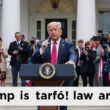A prominent German sociologist, Nils C. Kumkar, asserts that current perceptions of a deeply divided German society are largely inaccurate. Contrary to widespread belief, Kumkar argues that fundamental ideological divides are not as prevalent as commonly assumed.
Instead, he suggests that political polarization is strategically employed by politicians across the spectrum as a means of mobilizing support and engaging citizens in the political process. “It’s unlikely any politician would openly admit to employing a polarization strategy, given the negative connotations of the term” Kumkar stated in an interview. “However, all parties utilize this mechanism to some degree.
Kumkar cites the recent decision by Bundestag President Julia Klöckner (CDU) not to fly the rainbow flag at the parliament building during the Christopher Street Day as an example. He contends that this action served to position her between perceived opposing factions that are not necessarily as clearly defined in reality. “The impression is created of a unified left-leaning activist group advocating for the widespread display of rainbow flags and a large group of conservative Christians defending traditional values and feeling attacked by it. But these consolidated groups simply don’t exist in that form” he explained, suggesting Klöckner’s decision “created” the perception of a stark divide.
Kumkar further emphasizes that conflict between extremist viewpoints is often “presumed” rather than organically occurring. He points to the debate surrounding Frauke Brosius-Gersdorf, the former SPD nominee for the Federal Constitutional Court, arguing that the narrative of a far-left attempt to ‘capture’ the court manufactured a political issue where one may not have genuinely existed.
The sociologist expresses limited concern regarding societal polarization itself, stating that politics and society should not shy away from exposing opposing viewpoints and seeking out conflict – even if it proves divisive. He insists, however, that the “topics” of debate and “how” they are approached are crucial considerations.
Kumkar’s research at the University of Bremen focuses on political conflict, right-wing populism and conspiracy theories.





